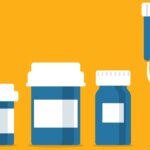A Queensland GP is urging the Premier and Health Minister to consider the trial’s many risks to patients and public health.
A Queensland GP has launched a petition to Premier Annastacia Palaszczuk and state Health Minister Yvett D’Ath, urging them to stop the proposed “North Queensland Pharmacy Scope of Practice Trial”, in which pharmacists would be able to diagnose and manage a list of 23 conditions.
Dr Stephanie Dawson-Smith from Chermside writes on change.org that the trial should be opposed on multiple grounds, including “unconscious incompetence” on the part of pharmacists; the lack of rigorous evaluation; more antibiotic prescribing promoting antimicrobial resistance; fragmentation of primary care; and the likelihood of a “hammer and nail” problem, in which participants would be biased towards seeing a condition on their list rather than an alternative that also fits the symptoms.
The RACGP, ACRRM and the AMA have all withdrawn their representatives from the trial’s steering group since the proposal and their involvement became public.
The list of conditions/needs that pharmacists would be able to diagnose and manage under the proposal after a short training course – reported to be 120 hours – includes type 2 diabetes, hypertension, GORD, asthma, COPD, herpes zoster, eczema, psoriasis, acne, oral contraception and travel medicine.
“Being able to purchase antibiotics from a pharmacist without a prescription from a doctor used to signify that you were in a developing nation,” Dr Dawson-Smith writes. “The sale of these antibiotics by pharmacists in developing countries is known to contribute to antimicrobial resistance.”
But that ship has sailed, she writes, in the form of the UTI prescribing trial, already under way in Queensland and granted an indefinite extension: “Unfortunately, the success of this pilot has been based on how much patients liked being able to access antibiotics for a possible UTI without seeing a doctor, rather than on appropriate clinical outcome measures.” That pilot is not running as a clinical trial, with a control arm or rigorous evaluation, and there is no suggestion the new proposed pilot will either.
TUESDAY UPDATE: The AMA has called on Queensland Health to release the results of this trial, which it has deemed very successful.
“We have no idea of the success or otherwise of the UTI prescribing trial, which started in 2018 and was recently extended indefinitely,” AMA Queensland president Professor Chris Perry says.
“It was not a clinically-registered trial, and the only evaluation we have seen so far is the number of prescriptions written.
“We don’t know how many pharmacists performed a basic urine test before diagnosing a bacterial infection and selling antibiotics.
“We don’t know if any follow-up was done to see how many patients subsequently sought further treatment from a GP, or presented to an emergency department, or were later diagnosed with a more serious condition, including cancer.”
Pharmacists are likely to miss serious clinical conditions, Dr Dawson-Smith writes, “as their lack of adequate knowledge and experience would put them in the perilous position where they do not know what they do not know: unconscious incompetence”.
Given a lack of training and experience in history-taking and examinations, pharmacists will not be able to consider clinically important differential diagnoses to the ones on their list, Dr Dawson-Smith writes, nor will they have access to pathology and imaging. For example, GORD is on the list, but ischaemic heart disease, peptic ulcer disease, Crohn’s disease, oesophageal and gastric cancers are not.
This is the “when all you have is a hammer, everything looks like a nail” problem.
“Inescapably, there will be confirmation bias to see a provisional diagnosis that is on their list, a diagnosis that does not require utilising investigations that they cannot access.”
Finally, without being able to provide the range of allied health and non-pharmaceutical care that a GP will coordinate, for example, for a T2Dm patient, inserting a pharmacist will only disrupt the continuity of patient care.
As of this afternoon the petition had reached nearly 2500 signatures.
You can read in full and sign the petition at change.org.








